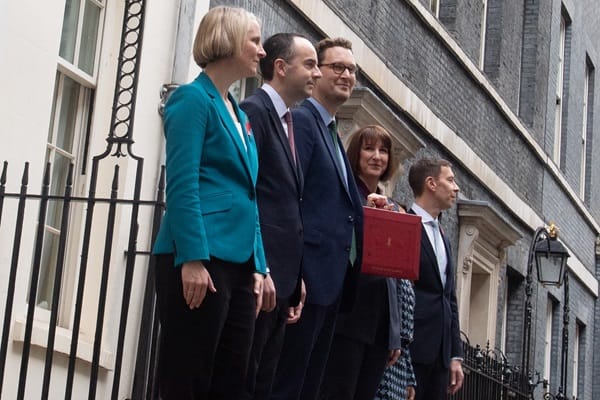Bussiness
Business owners feel the pain: Significant CGT, IHT and employers’ NIC changes confirmed – London Business News | Londonlovesbusiness.com

The Chancellor announced in the House of Commons on Wednesday that employers’ national insurance contributions (NIC) will increase by 1.2% to 15% from April 2025 while the earnings threshold at which employers start making contributions was cut to £5,000.
Capital gains tax (CGT) rates are increased today from 10% to 18% (lower rate) and 20% to 24% (higher rate).
Agricultural Property Relief and Business Property Relief on IHT will be reformed from April 2026 with assets above £1million attracting 50% relief, but with no threshold for AIM shares.
Toby Tallon, tax partner at professional services group Evelyn Partners said, “Rachel Reeves actively courted the business community well in advance of the election. However, since the election business owners have been on a rollercoaster of uncertainty in the run-up to the Budget with an array of tax rises suggested by or leaked to the press. They are today feeling the pain given the significant changes confirmed to CGT, IHT and employers’ NIC contributions.
“These tax changes will leave many business owners questioning whether they should invest their time, energy, risk and money in starting and growing businesses. Many will face difficult dilemmas about whether it is worth taking on more staff, or indeed retaining the ones they currently have given that costs of employment will rise.
“In the run up to today we saw numerous reports of entrepreneurs planning to move abroad if the Budget didn’t deliver for them, with our own research of 500 business owners revealing that almost half would consider leaving the UK if the tax changes were clearly unfavourable. But perhaps the greater risk is inactivity. If the business owners lose confidence in the Government’s economic or fiscal plans, they might decide that striving for that extra growth is not worth it if the rewards are more heavily taxed.”
IHT changes
Tallon said, “The introduction of restrictions to IHT business reliefs will make it more costly to pass family firms on to the next generation. This could put the viability of many long-standing companies – and the ability to continue employing loyal workforces and growth in local communities – at risk, particularly if family members of business owners have sizeable IHT bills they need to settle.
“Businesses plan for many variables and risks, but the trickiest and most painful one is the death of the owner manager. On top of the personal loss for the family, the last thing that the employees, suppliers and local community want is for the business to be sold in order to pay inheritance tax. However, following the Chancellor’s announcement many families will now be left in the difficult position of considering whether businesses should continue trading.”
He added, “Agricultural businesses are particularly affected by today’s Budget given the restrictions made to agricultural property reliefs. Since Brexit, farming in the UK has become even more precarious with the withdrawal of European subsidies. In the meantime, food security, provenance of what goes into the food chain and stewardship of the natural environment have grown in strategic importance.
“Restricting agricultural property relief, which was introduced in 1984 to protect the agricultural value of land from inheritance tax on death, will leave many agricultural businesses in a precarious situation and facing questions about their futures.
CGT changes
Tallon said, “While the increases in CGT rates weren’t as extreme as some feared, these hikes could still put off entrepreneurs from starting businesses in the UK and this could slow growth in the UK economy. We saw from recent research we conducted with 500 business owners that if higher CGT rates were introduced in the Budget – as has happened today – 46% of business owners would be deterred from starting a new business.
“Furthermore, nearly half (48%) would consider moving their businesses abroad if tax changes were clearly unfavourable. We know of many business owners who were already packing their bags and preparing to move overseas because they feared what was to come.
“CGT has historically been charged at lower rates than income tax in order to reward entrepreneurs for the considerable risks they take when founding and growing businesses. The Chancellor’s announcement today reduces that incentive for business owners to invest in the UK.”
Increased NIC for employers and minimum wage
Tallon added, “The increased NIC costs for employers will make employing workers more expensive and could put off some business owners from taking on additional staff. Stalling job creation could have a detrimental impact on UK economic growth which would be extremely worrying.
“There is an added credibility cost given many have suggested that increasing employer NIC is the breach of a manifesto pledge. Going back on your word to come up with a better plan is a sign of strength, but only if you own it and are convincing that it is a one-off.
“The Chancellor’s announcement that the national living wage will go up to £12.21 from April – a 6.7% increase and above inflation – adds further pressure on those businesses who have been facing higher costs and a slowdown in consumer demand in recent years.”









